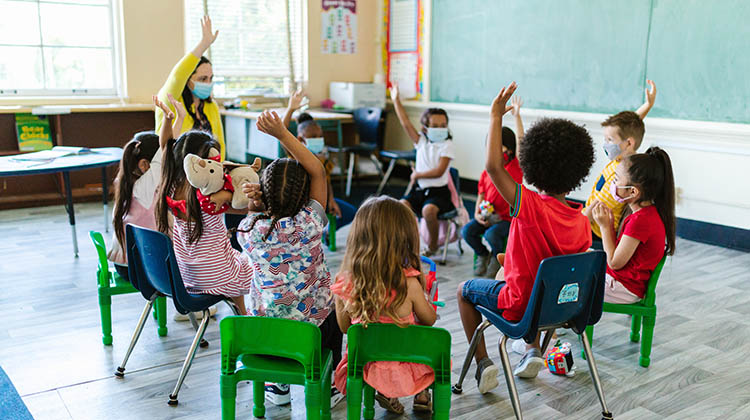International Investigation of Learning Spaces’ Impact

We know classroom layout, architecture, colours, furniture all have an effect on learning so quantifying what that effect is and whether it is similar or different between countries would be valuable.
Now Edith Cowan University (ECU) and the University of Melbourne have signed an MOU to work collaboratively on identifying the next generation of research into how schools, teachers and student use the spaces in which they learn, creating a study that is unique in its size and scope.
Dr Julie Morris, a Senior Lecturer and Course Coordinator for Visual Arts education (secondary) in the School of Education at Edith Cowan University, and an Honorary Fellow at the University of Melbourne, is preoccupied with the investigation of learning spaces’ effect.
Dr Morris thinks that the types of spaces in which we teach and learn can increase high-impact teaching, student deep learning, and student learning outcomes in a variety of subjects.
With ‘innovative learning environments’ (ILEs) now common across the world, the international implications of this body or research is creating a demand for similar research – are the findings in Australia relevant to other places?
The ILE+SE Scoping Study, co-lead by Dr Morris, has recruited over 200 leaders in research, education policy and practice, and ‘allied’ industries (such as architects, acousticians, engineers, and furniture designers) to identify what gaps exist in current ILE research, what needs to be addressed, and how these needs differ internationally.
Twenty-one teams across 19 countries are using bespoke workshop designs to brainstorm these topics, while an additional 50 cross-disciplinary international experts participate in a corresponding Delphi study. The structure, scale, and the global nature of this study is unprecedented in ILE research.
The cross-tabulated results will create a mandate for the next generation of ILE research. It will result in the development of a unique global research project.
Through this process, a unique network of world experts will be created to drive this research into the future.
ECU will work with the University of Melbourne’s Learning Environments Applied Research Network (LEaRN) to progress more than two decades of research by the cross-disciplinary (Architecture and Education) LEaRN group that has assisted the design of flexible and agile school designs and evaluated their impact on student learning and teacher pedagogies.